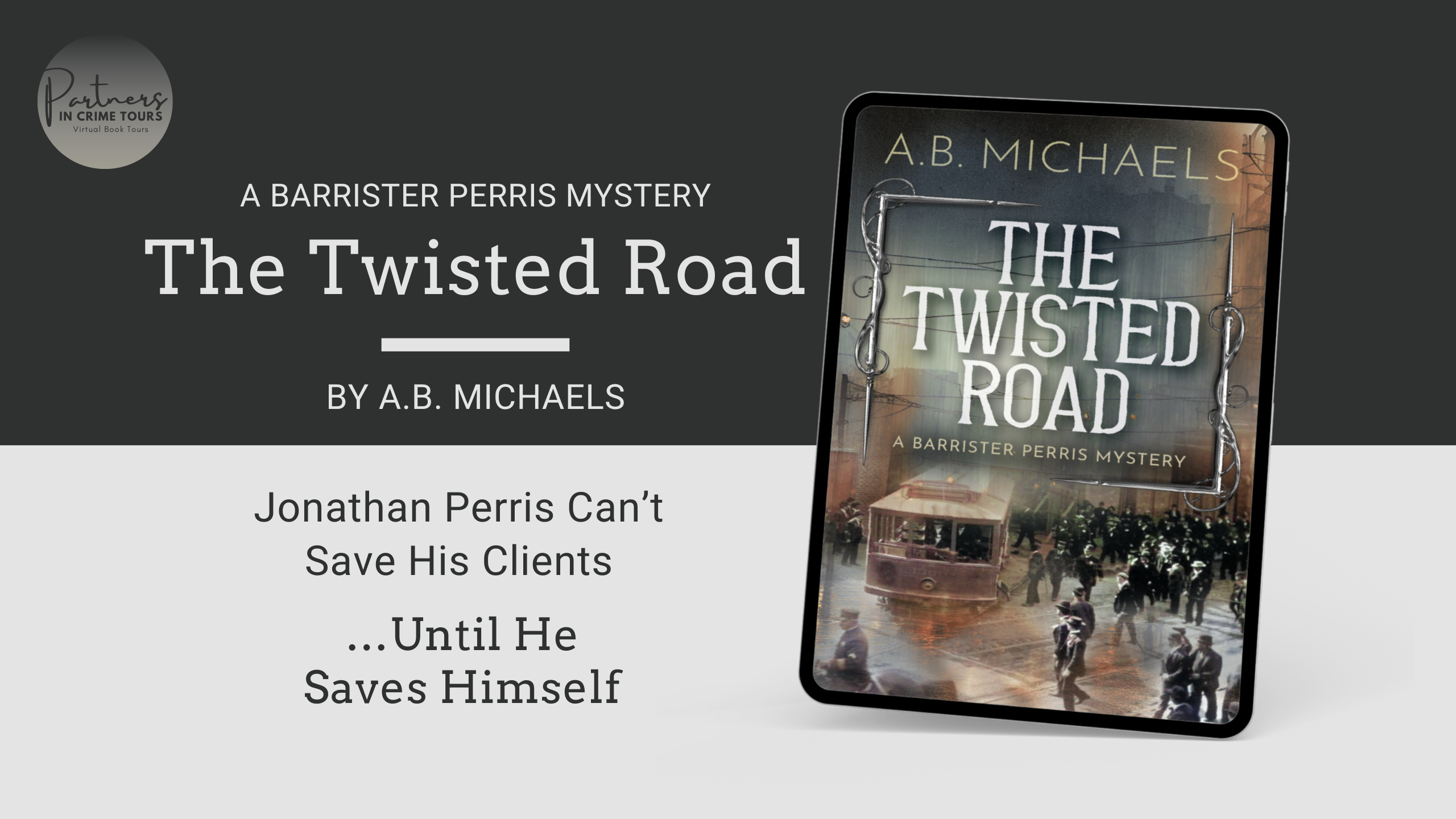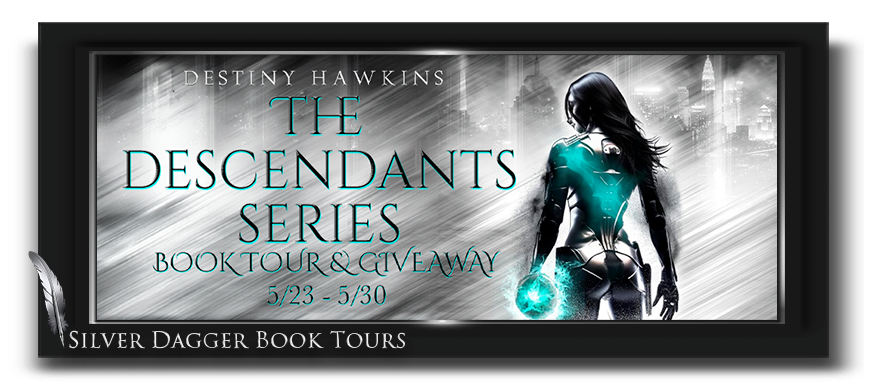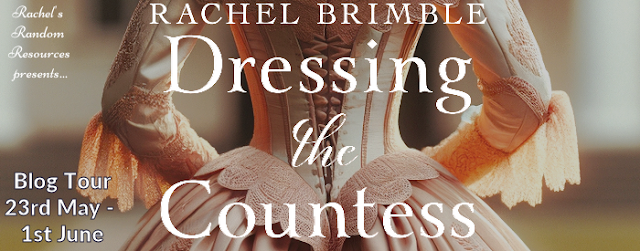Chapter One
Bloody Tuesday
San Francisco
Turk Street Car Barn
May 7,1907
Nineteen years old, with the long, skinny limbs of a colt, Jimmy Walsh crouched behind a lamppost and shivered in the early morning fog. He dropped the brick he’d been clutching and hesitated before picking it up again. "This ain't right," he said, just loud enough for his nearest comrade in arms to hear. "It's like waitin' for Beelzebub to unleash his hounds of hell." Several yards away, the wooden barn that housed the city's electric trolley cars remained shuttered, but the sounds inside, muted through the mist, told him the show was about to begin.
Toke Griffin, a rock in one meaty hand, took a drag of his cheroot with the other. The smoke mixed with the fog, obscuring his leathered face. Two decades older than Jimmy, he was a union man from way back. This strike was nothing new. "Yeah, well them mutts are takin' our jobs and we got to stop 'em any way we can." He tossed the rock a few times and caught it. "They're scabs and rotten to the core. We got to let them know it." The gas-powered streetlight above Jimmy hissed, letting off sparks and a sulfurous belch. Toke barked in appreciation. "Even the damn lamp's on our side."
"Shut the hell up!" Another hiss—this one from a fellow striker, positioned behind one of the barbed wire barriers the scabs had set up to protect the cars. "You'll give us away."
Toke continued to grouse but lowered his voice. "Hell, you think they don't know we're out here? They're chompin' at the bit same as us." He tossed his rock again. "But we got right on our side, just like old Davey and Goliath. You wait and see."
Jimmy tried to swallow but couldn't get passed his Adam's apple. Lord, he wished he had some water or somethin' else to calm the jitters taking over his body. Even his lucky red flannel shirt was no help. Why didn't he keep the grub his mother had given him as he’d left that morning? She'd been up before him, knowing he had to go and not even trying to talk him out of it. "You keep your head down," she warned as she handed him the bag with bread and cheese and a slice of apple cake in it. She’d even put in a mason jar full of cider.
"Sure, sure, Ma," he'd told her, "Don't worry about it. I'll be fine." Giving her a peck on the cheek, he’d headed out, but once around the corner, he'd ditched the bag, thinking it would look squirrelly bringing a lunch sack to a riot. What a damn fool.
It shouldn't have come to this. It'd been over a year since the earthquake and fire had torn up the city, and the roads were still a tangled, busted-up mess. It was tricky driving the streetcars, and there were fewer drivers to boot. All the union wanted was an eight hour day and three bucks a shift. But United Railroads kept bickering with the city over repairs and used that excuse to refuse the union's demands. What else could the carmen do but strike? Then the company brought in the Farleymen to drive the cars—four hundred of them! It stunk to high heaven and Toke had the right of it: they had to stop the scabs from taking their jobs.
The crowd outside the barricade was growing. Jimmy saw groups of Poles and Italians and Irish, even Chinese. They weren't members of his union, but they were workingmen all the same, showing their support. That was labor for you, sticking together to get the job done. But there were also women and kids pouring out onto the street, like it was a parade or something! Thank God Ma had stayed home; he hoped his cousin was smart enough to keep her distance, too. This kind of ruckus was no place for females.
But damn if there weren't plenty of ladies mixed in with everybody else, a lot of them young and fired up, itchin' for a fight just like the men. He'd never admit it, but deep down, part of him admired their courage. Like Toke said, they were sticking up for what was right.
He was chewing on those thoughts when the big wooden doors on the barn began to slide open with a screech and the streetcars lumbered out, each driven by a scab, and each protected by several men with clubs and a guard with a rifle. The clock in the tower above the car barn soon started chiming the hour, but it was nearly drowned out by all the people screaming insults as they surged through an opening where the cars were supposed to leave the yard.
The strikers rushed by Jimmy, shoving him out of the way and already throwing whatever they'd been carrying—rocks and bricks and bottles—toward the scabs. Some strikers on the roofs pushed iron girders they must have got from construction sites; the beams hit the cars with a sickening clang.
Jimmy started to throw his brick, but stopped when he got a look at the second car and who was guarding it. Damnation, it was Emmett Barnes! That sonofabitch used to be a union man—not to mention Jimmy’s best friend—and now he was a hired gun for the Farleymen! He watched Emmett shoot his rifle into the air a few times, and his shots were answered by rooftop union men protecting the strikers on the ground. He couldn't see Emmett's face too well, but he bet his ex-friend wasn't happy, especially since his shots hadn't stopped the crowd from swarming around his car. Jimmy wasn't part of that crowd; he couldn't make himself move—like he was paralyzed or something—as he watched it all unfold.
A brick sailed through the air and hit Emmett in the face; he dropped down, and Jimmy couldn't see him anymore. He glanced to his left and saw a man taking photographs of everybody. "Quit takin’ pictures!” Jimmy yelled at him. “Get out of the way—you're gonna get hurt!"
More and more people began pushing Jimmy from behind, determined to stop the cars from running. He turned back to Emmett's car and saw ... and saw the rifle pointed toward the crowd from another angle. No, pointed right at him. Emmett? It couldn’t be. He wouldn't do that, would he? He wouldn't—
Jimmy Walsh started to put his head down like his ma had told him, but he wasn't fast enough. He heard the crack of the rifle and felt the thump of the bullet hitting his skull. Then he felt nothing at all.
Chapter Two
A Tainted Case
San Francisco
June 1907
A barrister’s duty is to champion his client and seek justice in a court of law; when the client is guilty as sin, it complicates matters.
Jonathan Henry Perris rose to give his closing argument in the matter of the state of California vs. Horace Baxter. He faced the twelve men sitting in judgment before him.
“Gentlemen of the jury, you have already heard the facts of the case. My client, unfortunately, did shift money in relatively small amounts, from his firm’s accounts payable to his own savings account, over the course of several months. Those deposits did indeed line up chronologically with the amounts later deemed missing from the company’s ledger. It’s notable that Mr. Baxter, being the mathematical expert that he is, was precise in his recording, which speaks to his intent, as you shall see.
“That is the ‘what’ of this case and we shall stipulate that for the record. But the ‘why’ of Mr. Baxter’s actions is crucial and so, if you will indulge me, I would like to frame it within the context of the world in which each of us lives … a world comprised of three lives: one public, one private, and one secret.”
The prosecuting attorney looked comically befuddled. “Objection. What relevance does this have to the case before the court, Your Honor? Who cares why the defendant broke the law? The fact is, he broke it.”
Judge Cormer cocked his head toward Jonathan. “Mr. Perris?”
“I believe motive has much bearing on this case, your Honor. I will make my point as succinctly as possible, but you will see the relevance, I assure you.”
The judge scratched his beard. “Overruled, then. Proceed, Mr. Perris but do make it succinct.”
Jonathan turned back to his audience. “For example, I have come to know the public lives of many of you sitting here today. You are, generally speaking—” he said this with the hint of a smile, “— a reputable lot: a banker, a woolens merchant, a sheep rancher, to name a few. I too have a public persona. I am an immigrant, of course, but a respectable one, I hope. I am a trial attorney—what we would call a ‘barrister’ in England.” He extended his arms as if to display himself to the jury. He was wearing an impeccably tailored gray wool suit. “I bathe, I shave, and I dress suitably for my profession.
“But, like you, I also have a private life. I am not married and those who visit my abode might notice the lack of a woman’s touch.” He kept his rueful smile in place. “I indulge in perhaps more than the occasional whiskey, and I keep erratic hours because, unlike many of you, I have no one waiting for me.”
His tone began to harden. “Were I a fly on the wall in your homes, what would I witness, I wonder? Perhaps a perfect illustration of domestic bliss ...” He leveled his gaze on specific members as he spoke. “… or perhaps not. My guess is that one or more of you enjoy your own favorite spirits to help you relax after a long day. Perhaps you drink too much, and your better half doesn’t like it. Maybe you get a thrill out of playing the ponies and you become despondent when you lose more money than you can afford. Maybe your temper runs hot, and your colleagues, not to mention your family members, have borne the brunt of it.”
Some individuals were becoming restive; a few looked decidedly uncomfortable, no doubt wondering where Jonathan was headed.
Certainly, Jonathan’s legal counterpart wondered. “Really, Your Honor? Is any of this relevant in the slightest to the matter at hand?”
Jonathan caught Judge Cormer’s warning look and forged ahead. “Ah, but then there is the secret life that many if not all of us lead.” His voice dropped. “Perhaps you find pleasure with those you shouldn’t be seen with ... maybe an addiction has you in its grip. Or perhaps you’ve done something so nefarious and so perverse that no one, no one must ever learn about it.” He leaned toward the jury box. “What if I, for example, were a murderer? What if one of you were? None of us would ever know it because it’s a secret.” Jonathan let the last word linger.
“My client, Horace Baxter, led three lives, too. To the public he was an experienced adjustor for a respected insurance firm, in charge of determining the amount of payout for a given claim and reimbursing clients for their loss. His private life was relatively tame, with a harried wife and three boisterous young children, whom he adores.”
Jonathan now grew animated, as if to let the jurors in on salacious gossip. “But his secret life involved a woman. Not in the sense you would imagine. Not a voluptuous siren who would turn the head of any man. No, gentlemen. She was his much younger sister, a dear sweet girl, naïve in the ways of the world, whom he had protected his entire life. She had been led astray and become, of all things, an opium eater. She was not married and could not hold a job. The only way to pay for her habit was to prostitute herself.”
Jonathan glanced at his client. Horace Baxter was a hefty, florid man who was now slumped and staring at the table in front of him: a man mortified beyond the pale.
Days before, Jonathan had railed against the man who had lied to him and professed his innocence until discovery had proved him guilty on all counts. Only then had he explained his true reason for “cooking” the company books.
Jonathan sorely regretted taking the case, which he had done at the request of a colleague to whom he owed a favor. He wanted to believe he’d ignored his own instincts about the defendant, but in truth, he hadn’t picked up any warning signs until it was too late. He should have known better.
“You have ruined any chance for me to establish reasonable doubt,” he’d admonished his client. “For God’s sake, man, with so much on the line, you don’t keep such a secret from your attorney!” Jonathan had advised Baxter to throw himself on the mercy of the court by exposing all, but adhering to such a strategy didn’t make it any easier to stomach.
Jonathan now continued his argument. “Imagine yourself in Mr. Baxter’s shoes, gentlemen. Someone immeasurably close to you follows the wrong path and no matter how much you entreat them, harangue them, threaten them, cajole them, you cannot break the chain of dependence, a chain that has brought shame to your family—secretly—but at any moment could become public knowledge and lead to societal rejection and possibly the loss of your employment, resulting in economic ruin for you and your loved ones. It’s a conundrum, is it not?”
He singled out the banker, who flinched slightly under Jonathan’s gaze. “You have one recourse left, which is to find a discreet sanitarium where your beloved little sister can get help. Such a place costs money that you do not have. So, you devise a plan to obtain that money knowing in your heart that it’s wrong to embezzle but rationalizing that it’s a small amount compared to the company’s vast book of business, and that you will find a way, somehow, to pay it all back. You are so intent on doing that, moreover, that you keep precise records. Your plan is to, over time, replenish the account, claim a ‘slight miscalculation’ in the monies due and return those amounts to each client.
“The time comes when you have enough set aside to pay for the treatment, and you are about to send your sister away when a curious and astute co-worker finds something amiss.” Jonathan shrugged at the end of his tale. “And so you, like Mr. Baxter, might very well find yourself here today.
“I humbly ask you to consider the “why” of this case, gentlemen, in light of your own secrets, and show mercy on this man who did the wrong thing for the right reason. That is all.”
* * *
Ten days later, Jonathan returned to the central jail to have a final word with his client. Although Horace Baxter was found guilty, the jury had taken pity on him and recommended time served, along with a modest fine and of course, the return of the stolen monies. Baxter would have to find a new job, but at least he wouldn’t rot in a prison cell.
“You gonna break open the bubbly after getting your man out of jail?” The desk sergeant wanted to chat, but Jonathan was in no mood for it. He had a few parting words for his client and the sooner said the better. “That’s a capital idea, but I’m afraid more mundane duty calls. Have you got Mr. Baxter’s personal effects? I’ll take them to him.”
The sergeant handed Jonathan the bag and waved him through. “Well, don’t be modest. The state had him dead to rights, but you got him off light as a feather. You’re a silver-tongued devil, you are.”
Jonathan ignored the compliment as he made his way down the hall. “That’s not always a good thing,” he muttered.
Horace Baxter was pacing his cell, waiting to be let out, when Jonathan arrived, asking the guard if he could have a few moments of privacy with his client.
“Thank God this day has arrived,” Baxter said once the guard left. He donned his coat, buttoning it over his ample girth. “I’m ready.”
“Well, I’m not,” Jonathan said. “Sit down.”
“What?” Baxter frowned. “Is something wrong?”
Jonathan fought to keep his words—and his actions—under control. “You might say that. I’ve been in contact with your so-called sister.”
Baxter swallowed. “So … you’ve seen Franny? How … how did you—"
“Imagine my surprise when I called on your long-suffering wife to ask about your sister’s welfare, only to find out it’s her sister—sweet, young Francine— who’s taken to a life of prostitution because of her addiction. And when I found that not so sweet young girl, plying her trade on Stockton Street, it turns out she’s disappointed as hell that you aren’t going to get her the help she so desperately needs. So disappointed, in fact, that she let slip who was responsible for her predicament in the first place.”
The desperate look on Baxter’s face spoke volumes. “Wh—what did she say?”
“You know what she said. And you know the only reason she doesn’t share that information with her sister is that it would destroy your family.”
“You don’t understand. I mean ... how tempting it was. I … I couldn’t help myself.” He hung his head, apparently bewildered by his own fall from grace.
“You couldn’t keep your pants buttoned around your wife’s sister—a member of your own family? And you did nothing when she began to escape her guilt through opiates?” Jonathan’s disgust was palpable. “You are a pathetic excuse for a human being, Mr. Baxter. You are the worst kind of bounder because you’re self-indulgent and you’re weak. The only reason I’m not exposing you is the same reason Francine suffers in silence.” Jonathan leaned in and lowered his voice. “But heed my words: if you go near that young woman again, I will personally see to it that you pay the price—and believe me, that price is much too high, even for a mathematical charlatan like you.”
“What’s going to happen to her?” Baxter whispered.
Jonathan rose to his full height. “That is no longer your concern. You focus on keeping your family fed, within the boundaries of the law.”
The two men said nothing more as Jonathan escorted Baxter out of the jail and into a waiting hansom cab.
Good riddance.
It was nearly noon and given his frame of mind, returning to his law office held no appeal. Jonathan considered inviting the woman he’d been seeing to an impromptu lunch, but quickly tabled the idea. Not only was Lena difficult to reach, but in truth he was in no mood to be sociable. Instead, he headed to a nearby watering hole and ordered one of the whiskeys he’d told the jury about. He thought about Francine and what she must have been like before she was betrayed by a brother-in-law she had no doubt looked up to and trusted. Tomorrow he’d find a way to help the young prostitute conquer her demons, but right now, more than anything, he needed to mask the bitter taste of setting a guilty man free.
***
Excerpt from The Twisted Road by A.B. Michaels. Copyright 2024 by A.B. Michaels. Reproduced with permission from A.B. Michaels. All rights reserved.



























